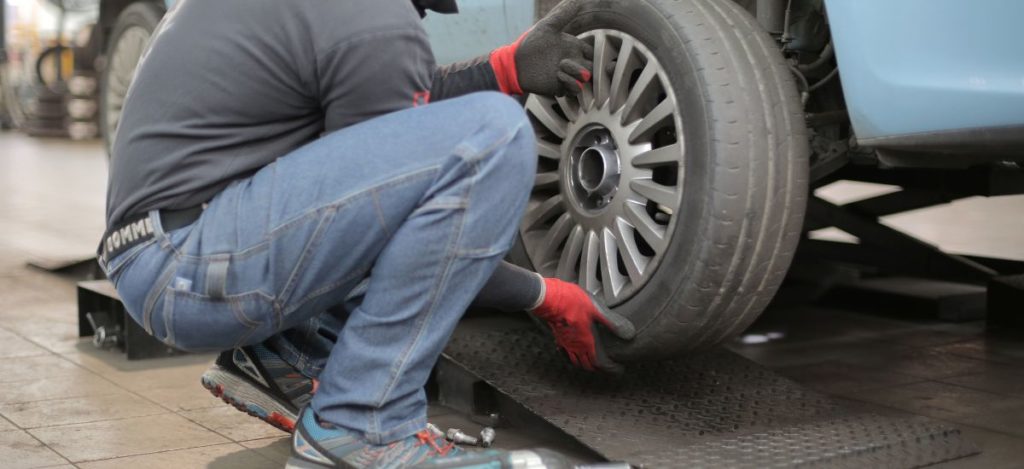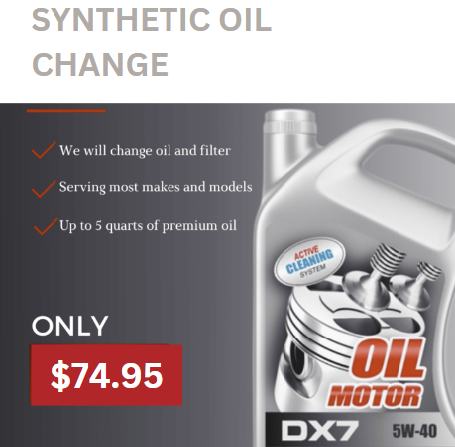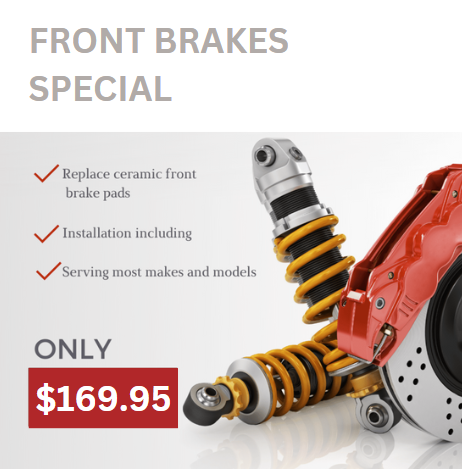Quick Brake Service Guide for Your Car
Your car’s brake system is one of the critical components to ensure your driving safety. It’s easy to take them for granted, but it’s essential to understand how we work and how you can keep them in good condition. In this blog, we will cover everything from the anatomy of a brake system to the different types of brake pads and rotors available in the market. We will also discuss when and how often you should inspect your brakes, what abnormal brake noises indicate, and whether your driving habits can impact your performance. Lastly, we will explain why regular brake maintenance, including brake repair, is crucial for your safety and how to choose the correct parts for your brake service. So, let’s dive in and learn everything you need to know about keeping your brakes functioning at their best!
Understanding Your Car’s Brake System
Your car’s brake system is a critical safety component ensuring your road safety. It comprises various components, including the brake pedal, master cylinder, and brake lines. Regular maintenance is essential to keep your brakes in optimal condition. The brake system plays a crucial role in converting kinetic energy into heat through friction, allowing your car to come to a stop. By understanding how the brake system works, you can ensure its proper functioning and take the necessary measures for auto repair when needed. Remember, friction plays a vital role in the efficient operation of your brake system.
Essential Components of the Brake System
Your car’s brake system comprises several components to ensure effective braking. These components include the rotor, brake pad, and caliper. The rotor is a crucial part that rotates along the wheel and is squeezed by the brake pad when you apply the brakes. The brake pad creates friction against the rotor, which helps stop the vehicle. The caliper houses the brake pads and applies pressure on them to make contact with the rotor. Additionally, the master cylinder controls the flow of brake fluid, while proper functioning of brake hoses and wheel cylinders is necessary for efficient brake operation.
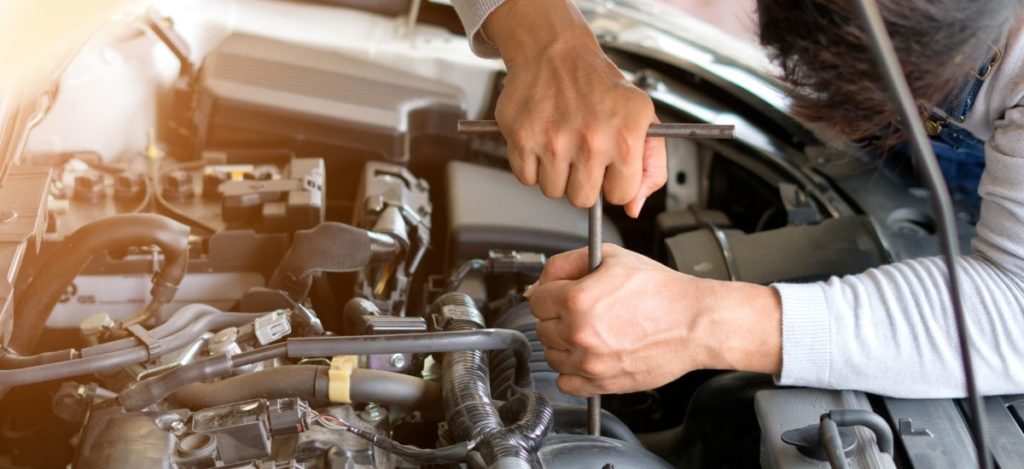
The Crucial Role of Brake Pads and Rotors
Brake pads play a vital role in the braking system by providing friction against the rotor, which helps slow down or stop the vehicle. The rotor, a disc attached to the wheel, is gripped by the brake pads to create the necessary friction. Regular inspection and replacement of worn-out brake pads and rotors are essential for optimal braking performance. Investing in high-quality brake pads and rotors can enhance braking performance and longevity. Upgrading to better brake pads and rotors is always a good idea for improved safety on the road.
Different Types of Brake Pads and Their Impact on Performance
Regarding brake pads, there are different types available in the market. Two popular options are ceramic and metallic brake pads. Ceramic brake pads are known for producing less brake dust and operating quietly. On the other hand, metallic brake pads offer excellent stopping power but may generate more noise and brake dust. Choosing the suitable brake pads depends on various factors, such as driving habits and personal preferences. Considering these factors is essential to ensure optimal car braking system performance.
How Often Should You Inspect Your Brakes?
Regular brake inspections are essential for routine vehicle maintenance. Inspecting your brakes at least once a year or every 12,000 miles is recommended. Factors like driving conditions and habits may require more frequent inspections. Following a regular brake maintenance schedule ensures safety and optimal brake performance.
Signs Your Brakes Need Inspection Sooner
If your brakes are making unusual noises like squealing or grinding, it could be a sign of a problem that requires inspection. Vibrations or pulsations in the brake pedal may indicate issues with the brake rotor. Please don’t ignore the brake warning lights on your dashboard, as we require immediate inspection. If you notice longer braking distances or a spongy brake pedal, it could be a sign of brake system problems. Paying attention to these signs and getting your brakes inspected sooner rather than later is crucial for maintaining the safety and performance of your brakes and vehicle.
Distinguishing Between Normal and Abnormal Brake Noises
Slight squeaking or chirping noises during braking can be expected in certain conditions. However, if you hear loud or continuous grinding noises, it indicates abnormality and requires immediate attention. Please pay close attention to any changes or new sounds in your brake system, as we can be potential warning signs. A professional inspection is recommended to identify the cause of abnormal brake noises accurately. By doing so, you can address any issues before we escalate and ensure the safety and performance of your car’s brake system.
What Does a Squealing Brake Indicate?
A squealing noise while braking could be a sign of worn-out brake pads. The high-pitched sound may be caused by brake pad wear indicators signaling the need for replacement. Ignoring this issue can lead to more problems and costly repairs. Timely replacement of brake pads is crucial to prevent further damage.
Is Vibration in the Brake Pedal Normal?
Mild vibrations in the brake pedal during braking are generally considered normal due to the friction process. However, excessive or persistent vibrations could indicate issues with the brake rotors or other components. Inspecting the brake system to diagnose and address any underlying problems is essential, as ignoring these vibrations can lead to brake failure and compromise safety.
Can Driving Habits Impact Your Brakes?
Driving habits play a crucial role in the longevity of your brakes. Sudden braking and frequent stop-and-go traffic can wear out brake pads and rotors faster. Developing smooth and controlled braking habits and maintaining a safe following distance can help prolong the life of your brakes.
What Factors Influence Brake Wear and Tear?
Factors influencing brake wear and tear include driving habits and conditions, regular inspection of brake components, heat and friction from braking, environmental factors like moisture and road salt, and proper maintenance of brake fluid levels.
How Does ABS Contribute to Brake Efficiency?
The ABS (Anti-lock Braking System) is crucial in enhancing brake efficiency. It prevents wheel lock-up during hard braking, improving control and stability. By reducing the risk of skidding and optimizing brake pressure, ABS contributes to shorter stopping distances and enhanced braking performance.
How to Choose the Right Parts for Your Brake Service
When choosing parts for your brake service, there are a few factors to consider. First, opting for OEM (Original Equipment Manufacturer) parts is a good idea as we are designed to fit your car. Consulting with a trusted mechanic or auto shop can provide expert advice on the right components for your brake system. Look for high-quality brake parts with good reviews and ratings to ensure reliability. If you want to enhance your car’s performance and durability, consider upgrading to premium brake pads. This can be an excellent opportunity to upgrade to higher performance or specialized components, such as slotted disc brakes, which are more heat resistant, or switch to quieter ceramic pads that produce less brake dust. Lastly, remember to check for warranty options when purchasing brake parts.
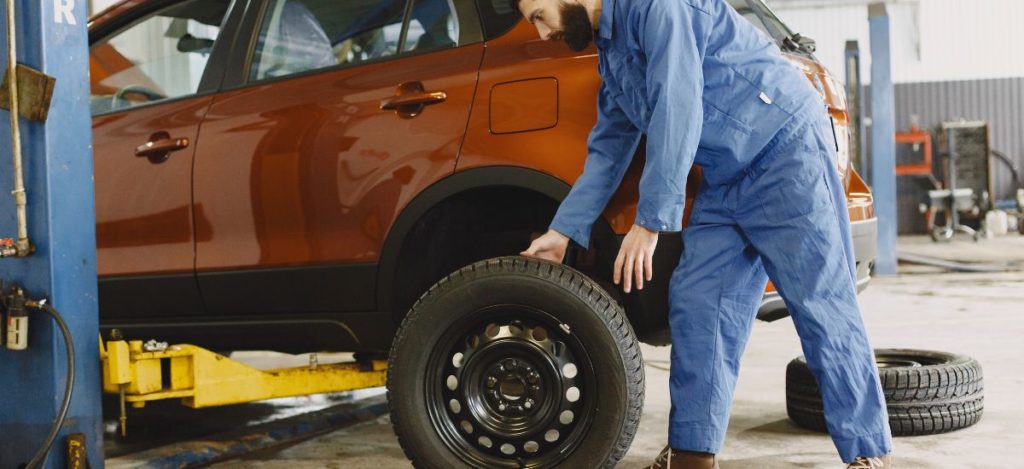
Why does the Cost of Brake Service Vary?
The brake service cost can vary depending on the vehicle type and the repair or replacement complexity. Specialized components and additional services needed during brake service, such as replacing worn rotors with new pads, can also impact the overall cost. Labor rates and location play a role in determining the final price.
What does a Complete Brake Service Include?
A complete brake service typically includes inspecting, cleaning, and adjusting all brake components. It may also involve brake pad replacement, brake fluid flush, and replacement, as well as rotor resurfacing or replacement if necessary. This comprehensive service ensures the optimal functioning of your entire brake system.
How Crucial is Regular Brake Maintenance for Safety?
Regular brake maintenance is vital for safe driving. Properly maintaining your brakes can reduce the risk of brake failure and accidents. Regular inspections help identify potential issues early on, improving overall brake performance. Following a maintenance schedule provides peace of mind and ensures optimal braking.
Conclusion
Proper brake maintenance is crucial for your and your car’s safety. Regular inspections, timely repairs, and high-quality brake components are essential to ensure optimal performance. Please pay attention to any abnormal brake noises or vibrations, as we may indicate underlying issues that need immediate attention. Understanding the different types of brake pads and their impact on performance can help you make informed decisions regarding brake service. Remember, driving habits and external factors can also influence brake wear and tear. By following these tips and staying proactive with your brake maintenance, you can ensure smooth and safe driving

